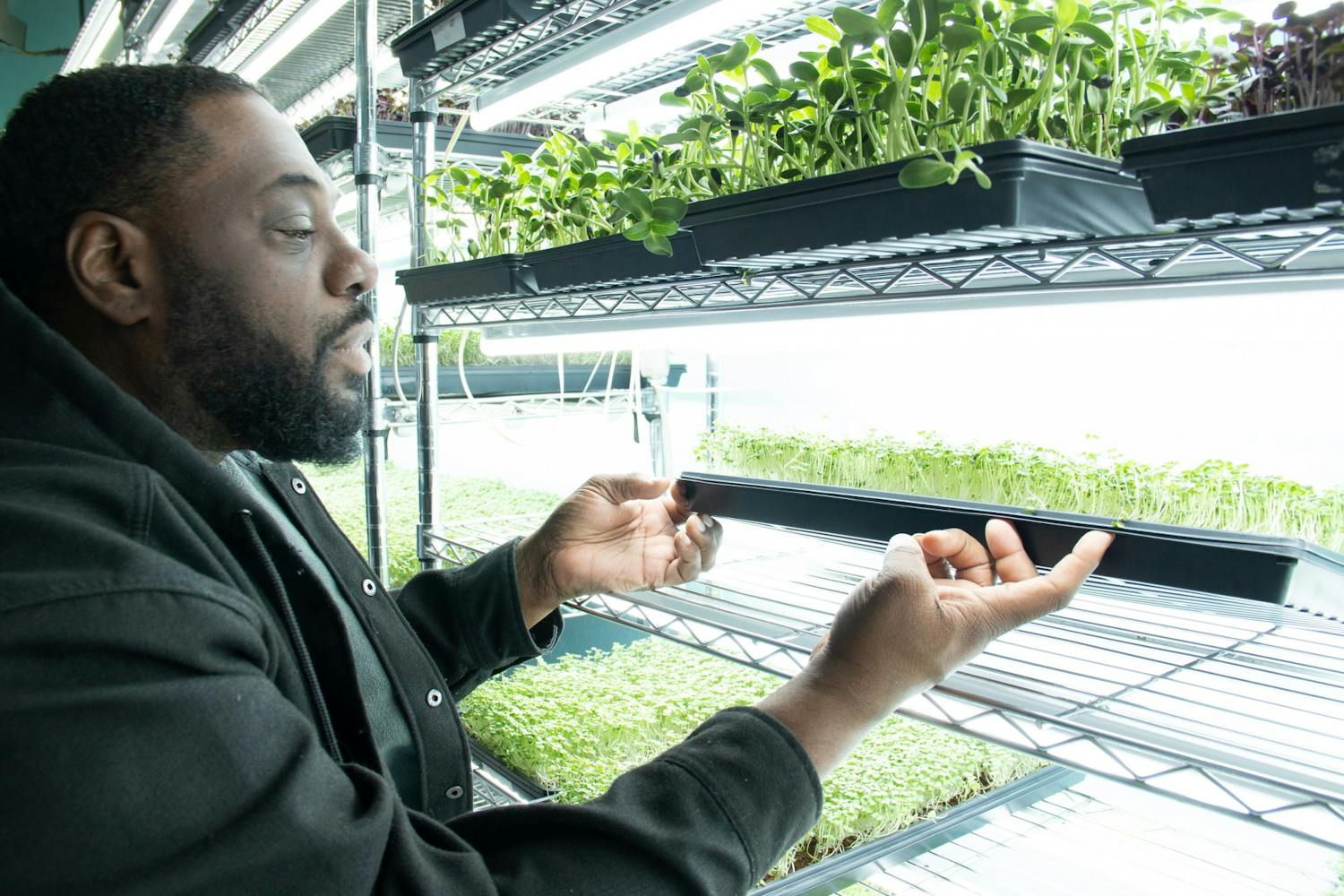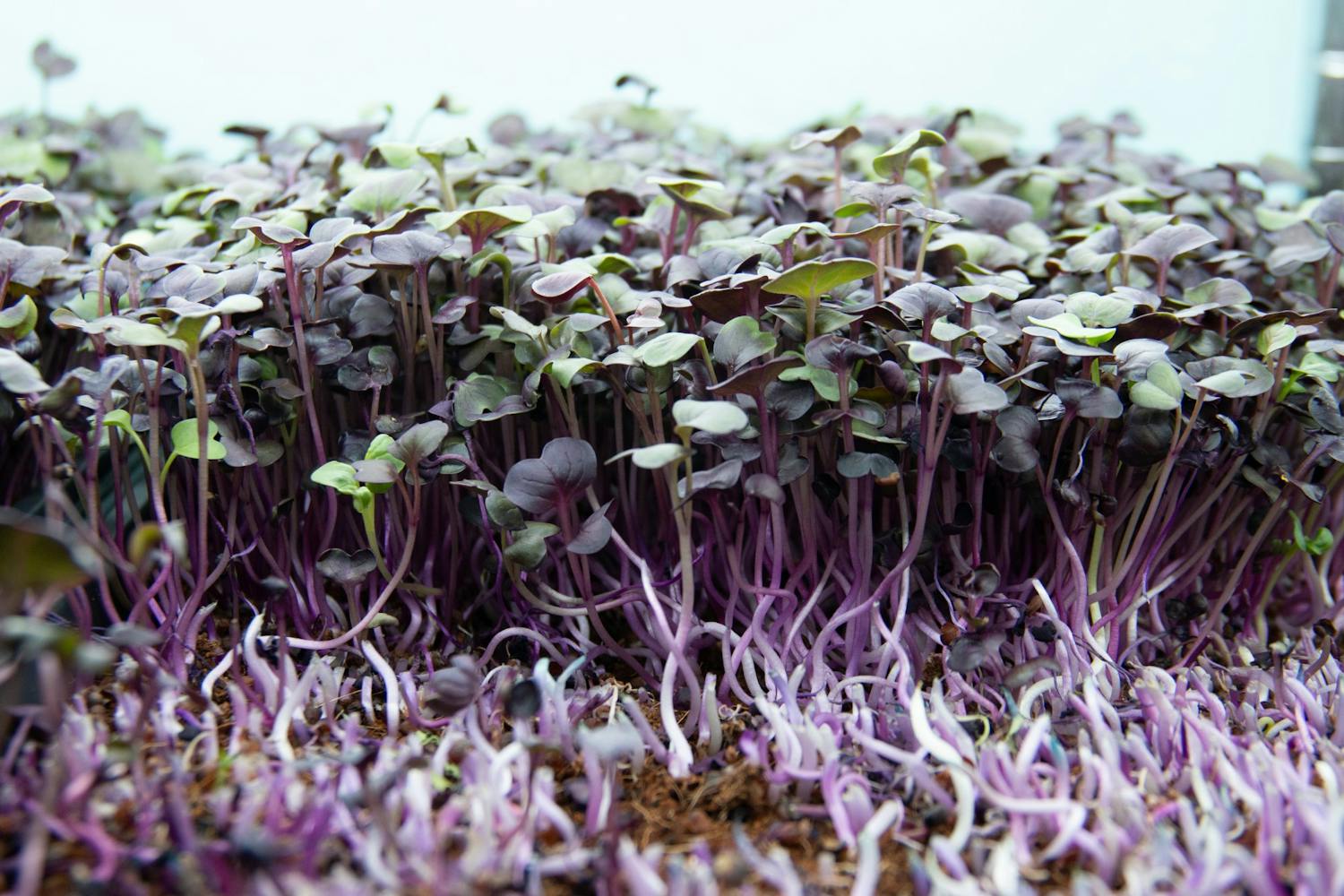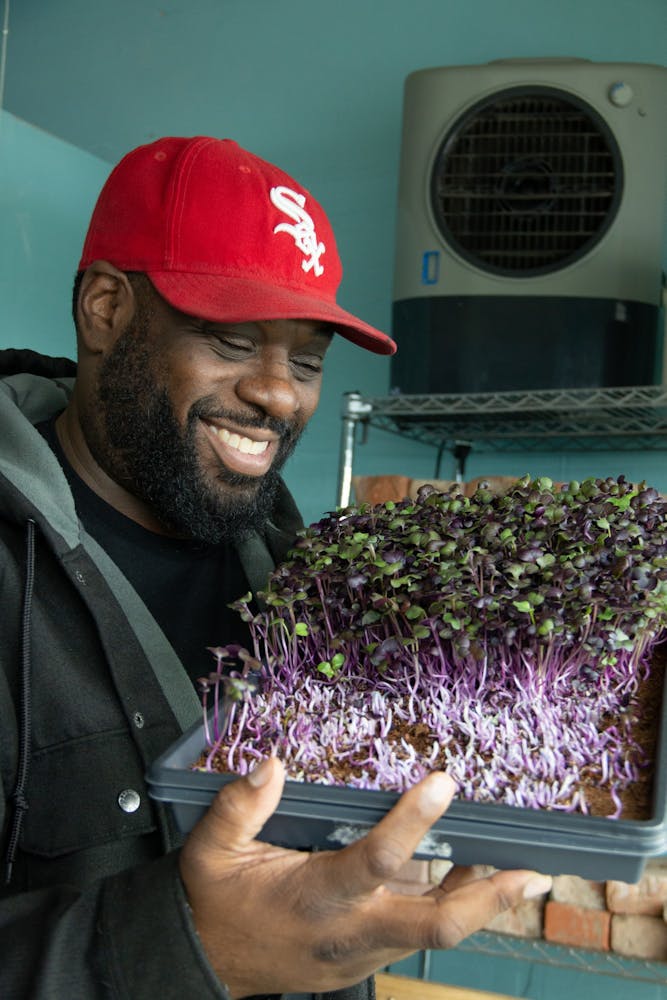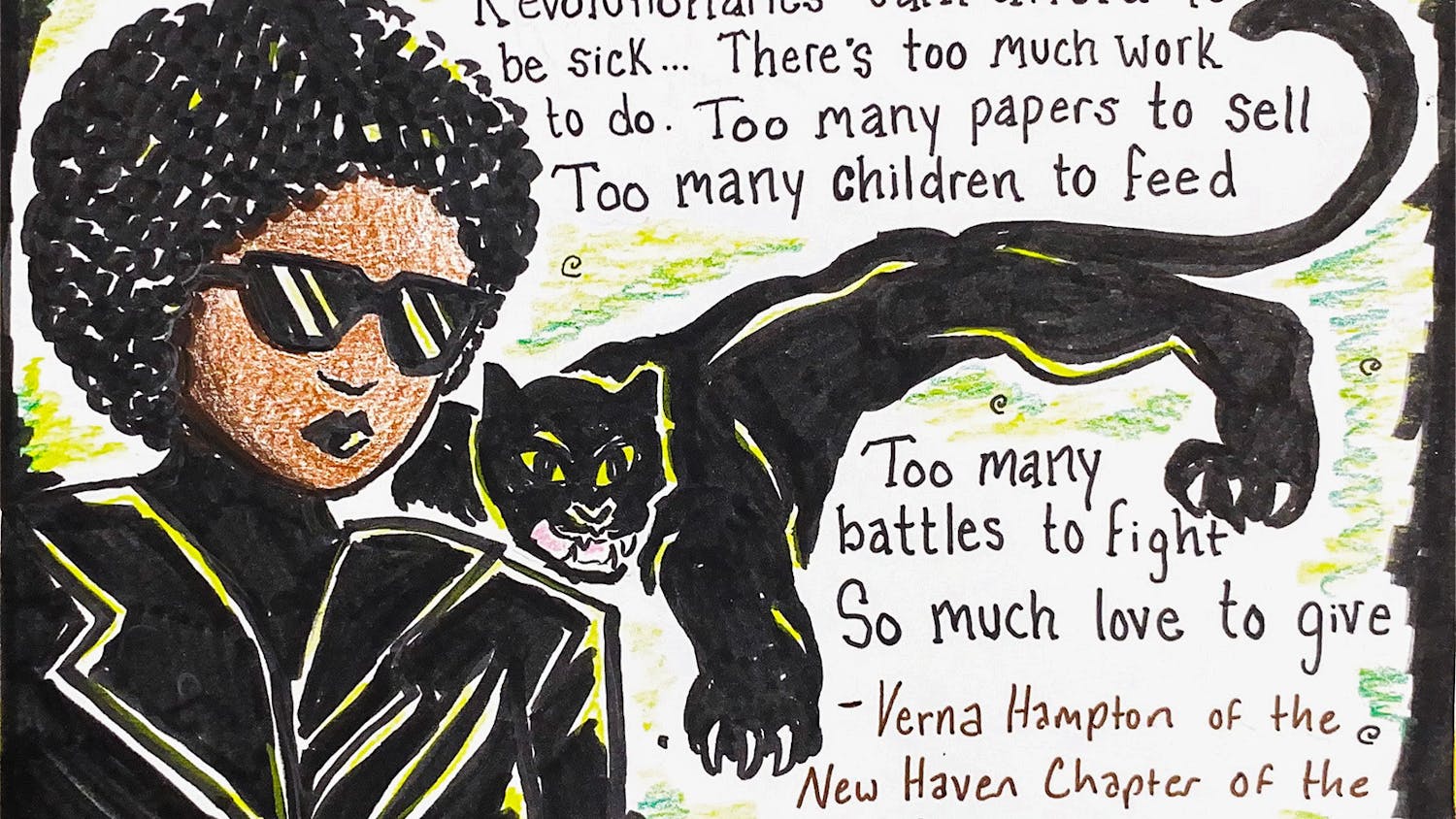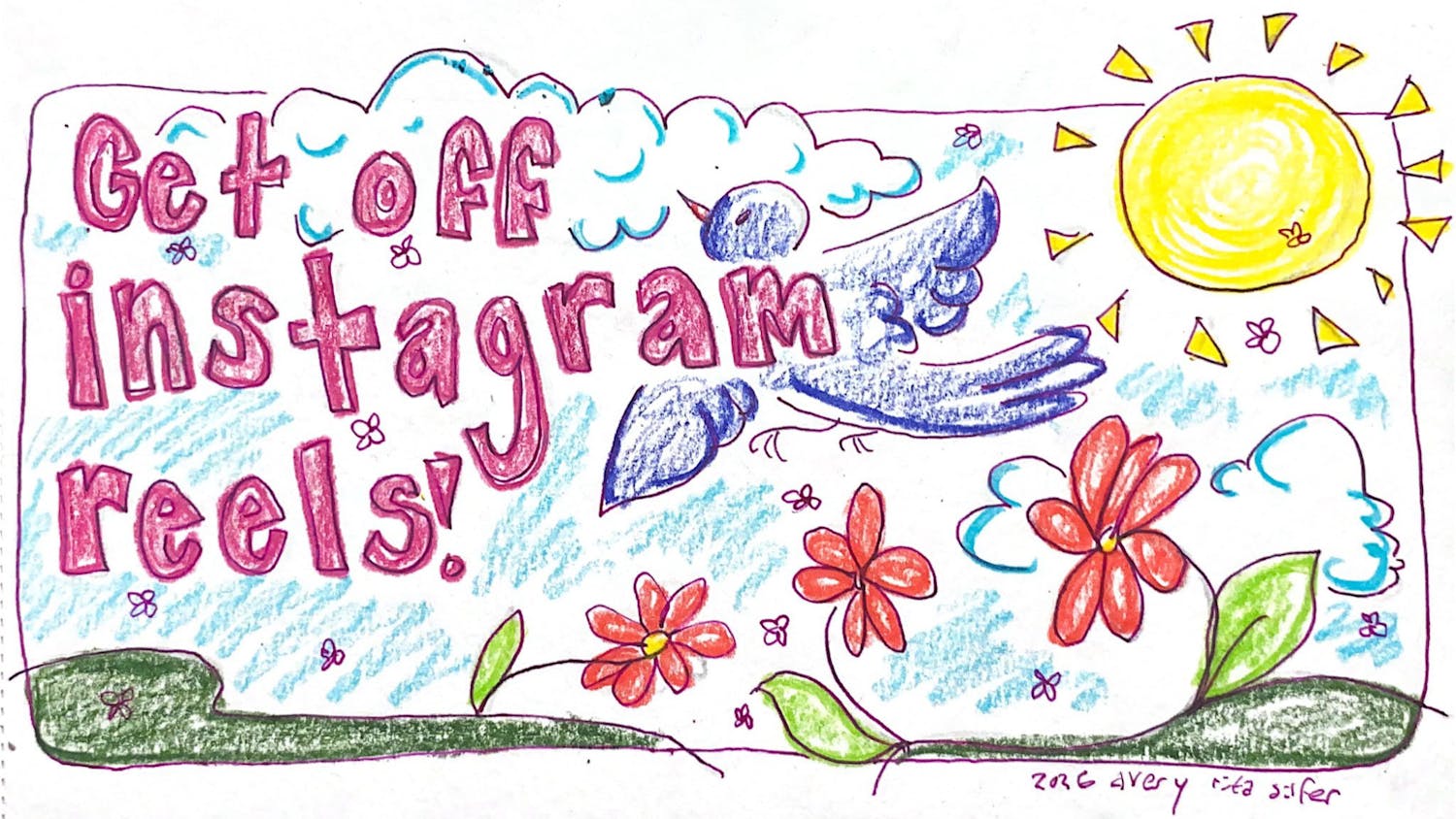Papa’s Little Helpers MicroFarm is a local business with a mission to grow and promote healthy, locally grown food. Owner Rico Robinson has set a goal to better educate everyone — especially the Black community — on the importance of eating healthy.
While the business doesn’t currently provide a large variety of meal options, Robinson hopes that he can incorporate a delivery service with healthy meals in the future.
“It’s going to taste like soul food, but it’s going to be purely healthy food,” Robinson said.
Soul food — a rich, savory cuisine that originated in Black communities in the U.S. South — is centered around being flavorful, which Robinson takes full advantage of with the use of microgreens, or younger plants that are just as healthy as they are delectable.
J.E. Jamal Martín, a lecturer in Africana studies at the University of New Mexico with three health-related degrees, said soul food is a unique tradition in the Black community.
“Soul food for me ... has always been about the transformation of human consciousness — spirit and psyche — in action while eating to live,” Martín wrote in an email to the Daily Lobo, referring to social movements in the ‘60s and ‘70s that similarly promoted soul music and soul power.
Robinson, who runs the microfarm on his own, got his start with the business after transitioning from 13 years of landscaping to gardening. After a drastic realization about his declining health, Robinson started changing his eating and drinking habits and lost about 150 pounds in seven months.
“I used to be almost 400 pounds, and I was losing everything. I had diabetes, high blood pressure, and I was avoiding dealing with it until they told me my liver was failing,” Robinson said. “That’s what scared me, and I was like, ‘I have to do something.’”
Now, Robinson has made it his mission to help others reach their own health goals. After his experience growing microgreens for his own health transformation, he started taking them to market where they grew, literally and figuratively.
“Once you get into it, there is a great deal of growth,” Robinson said.
The National Center for Biotechnology Information published a peer-reviewed paper in 2010 with findings that Black individuals intake less healthy food and develop correlated diseases more than other races, which Robinson attributed to a lack of resources and money. Robinson said the solution is to make healthier foods more accessible and readily available.
“Where we’re located, every block you’re going to have a Circle K, you’re going to have a liquor store, you’re going to have a fast food restaurant, so we stay within our block ... and we go eat from those first,” Robinson said.
Get content from The Daily Lobo delivered to your inbox
Martín said to be careful when looking at general health reports between different racial groups and reiterated what Robinson said about food deserts in Black communities, writing that “ZIP code is more predictive of well-being than genetic code.”
“One must examine multiple levels of racism, such as representational, ideological, discursive, interactional, institutional, structural and, of course, scientific racism,” Martín wrote to the Daily Lobo. “Making better use of critical thinking about thought and language helps us diminish stigmatization and discrimination.”
New Mexico overall also shows various racial health disparities, according to a 2019 report from the state's Department of Health. Robinson said “any other state” would know what microgreens are, but there is very little knowledge of them in New Mexico.
In addition, Robinson said that a majority of the food in New Mexico actually comes from other states, which means it has likely gone stale after being shipped from warehouse to warehouse, shelf to shelf.
“There needs to be a lot more education (on) exactly how the farmers work … We need more local (food), and then we need to have more education on how they’re going to cook with these things,” Robinson said.
COVID-19 has provided a challenge, much like so many other establishments, in terms of getting business for Robinson. However, the pandemic has also caused a surge in health awareness, including healthy eating.
“Currently, SARS-CoV-2 infection and COVID-19 disease offers a framework for analysis of public health nutrition,” Martín said. “African Americans living under COVID-19 with pre-existing conditions related to micro and macro nutrition disorders, dysfunction and nutrition-related chronic diseases who also consume pork need to take caution.”
Papa’s Little Helpers MicroFarms is currently undergoing fundraising efforts to advance his goal of better accessibility to nutritious food. Robinson said a delivery service for healthier foods is his objective for the future, where a person could use DoorDash or a similar service to order, say, a microgreens wrap instead of a pizza.
“There’s nothing holding us back except for opportunity and education,” Robinson said. “Right now, what I want is to be able to go and have a spot that is going to be open for the Black community where they feel comfortable with me and (have) recipes that they’re familiar with.”
Megan Gleason is the culture editor at the Daily Lobo. She can be contacted at culture@dailylobo.com or on Twitter @fabflutist2716




